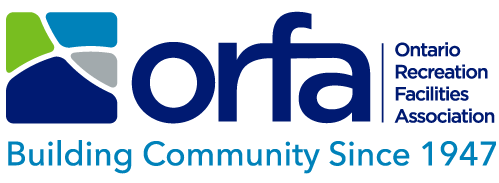- ORFA Home
- COVID-19 Updates
- July 1, 2020
- Return to Classroom COVID-19 Safety Plan
July 1, 2020
Return to Classroom COVID-19 Safety PlanEffective July 1, 2020 The ORFA is committed to the health and safety of all its members, especially to those returning to the classroom to access ORFA education and training courses. ORFA’s Return to Classroom COVID-19 Safety Plan outlines the steps the ORFA, in partnership with the host facility, and each participant, will follow to mitigate potential risks, issues, and concerns during the COVID-19 pandemic. We remind all participants that personal safety is always an individual commitment that when implemented will help protect other participants and society as a whole. The COVID-19 pandemic is an evolving situation. ORFA’s Return to Classroom COVID-19 Safety Plan will be reviewed and updated based on the latest information and direction from the Ontario government’s COVID-19 website and from local public health agencies in those locations where ORFA courses will be delivered. How will the ORFA ensure that all course participants know how to keep themselves safe from exposure to COVID-19? The ORFA COVID-19 information and updates section provides information and links to the most current information issued by federal, provincial and local public health agencies. Course participants are strongly recommended to review and understand the various COVID-19 guidelines and respective agency updates. See ORFA’s Return to Classroom COVID-19 Safety Plan. It will also be sent to all course participants who have registered to participate in future classroom-based courses scheduled from July 1, 2020 onwards. ORFA course instructors will work closely with the host facility who will be considered the safety lead in each classroom session. How will the ORFA screen classroom participants for COVID-19? Prior to Course Start Date Day 1 of Course Delivery
Further, participants will be asked if they have in the previous 14 days:
Any course participant who responds “Yes” to any of the questions will be asked to leave the course location. They will be directed to go home to self-isolate for 14 days, to take the COVID-19 self-assessment or to visit a COVID-19 assessment centre. The course participant will receive a complete refund of course fees. All questionnaires will be archived by the ORFA. Course instructors will also provide any updates or specific information regarding the host location or course participation changes. Day 2 and Consecutive Days of Course Delivery How will the ORFA control the risk of transmission in the classroom? ORFA courses are known for their networking and social interaction as an important part of the learning experience. This will continue to be encouraged by ORFA instructional team members but in a new and safer format. In cooperation with the host facility, the ORFA will maximize participants’ distance and separation, reduce the potential for transmission from surfaces and objects, and support good hand and respiratory hygiene: Physical Distancing and Separation Cleaning and Disinfection Hand and Respiratory Hygiene
What will the ORFA do if there is a potential case, or suspected exposure to, COVID-19 in the classroom? If at any time during the course, the ORFA has reason to believe that there may be a potential case of COVID-19, or suspected exposure to the virus among the course participants, the ORFA course instructor will immediately:
How will the ORFA manage any new risks caused by changes to the way it operates its classroom-based courses? The ORFA follows a traditional format of delivering its classroom-based courses using face-to-face instruction to course participants and communication between and among the instructor and course participants is face-to-face. The ORFA has reviewed its classroom-based course instructional format and methods and does not foresee any changes that might cause any new risks within the classroom environment. How will the ORFA make sure its safety plan for classroom-based course delivery is working? At the end of each course delivery, the ORFA will invite the course participants for their written evaluation on the course instructor and content. In addition, the ORFA will ask each participant for their comments and suggestions for improvements on ORFA’s Return to Classroom COVID-19 Safety Plan as it pertains to their level of comfort concerning their health and safety experience within the classroom. The ORFA will also follow-up with the host facility to review and address any health and safety concerns and how make improvements moving forward. The ORFA and course instructors will meet post-course to review and action on any concerns or issues. ORFA Return to Classroom COVID-19 Safety Plan Guidance Sources: | In this section |
